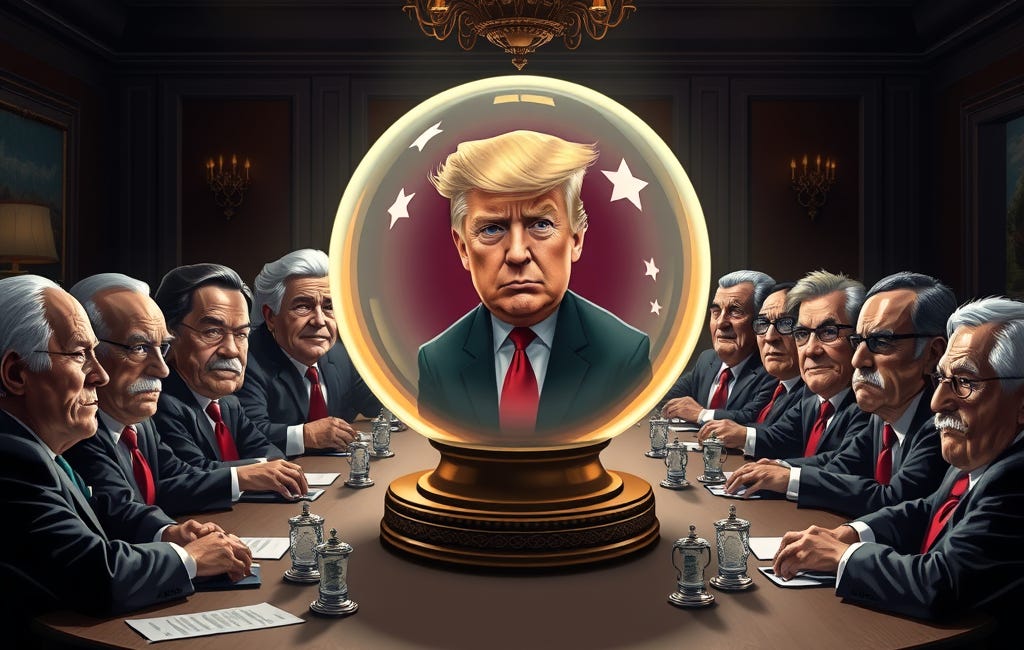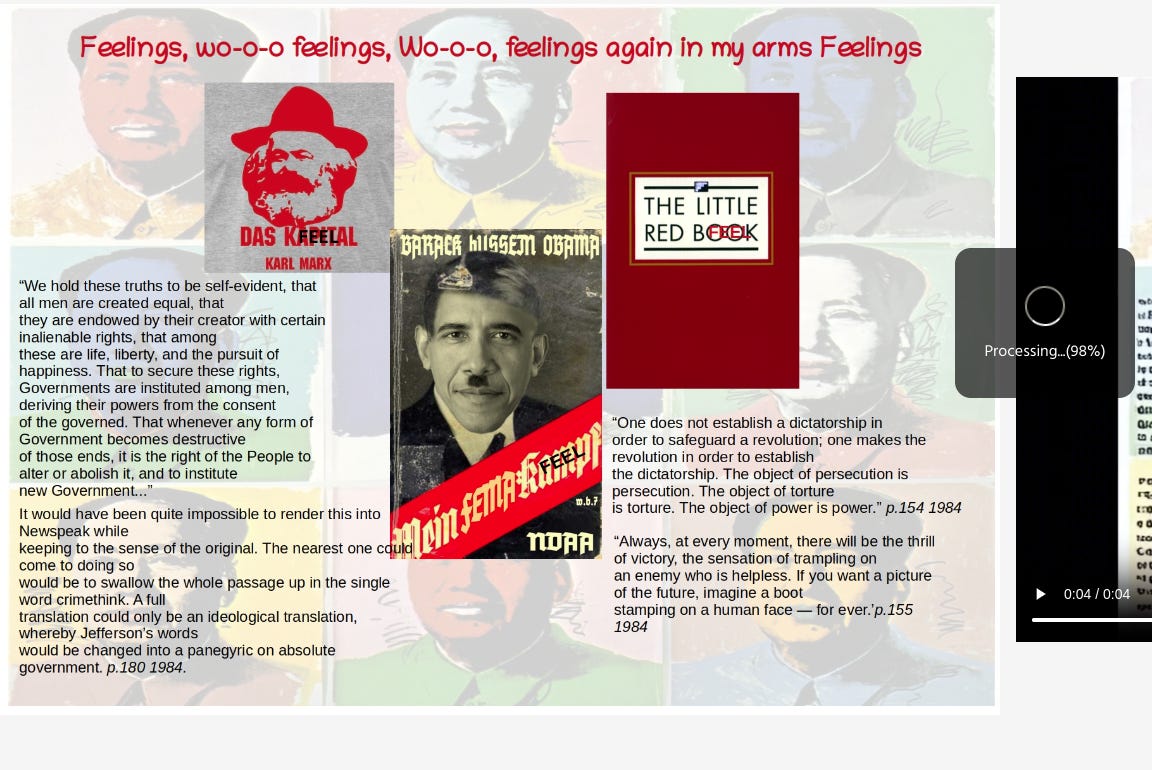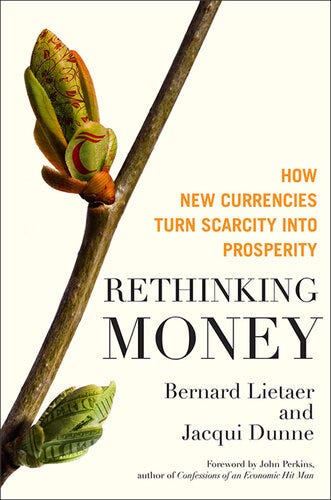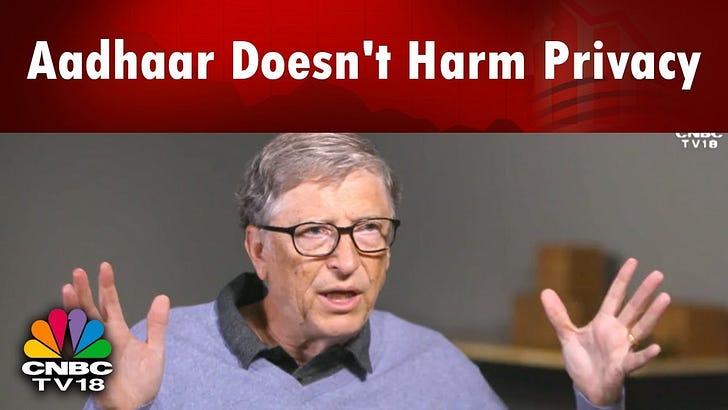Här är allt vi vet om sällskapet Bilderberggruppen
Wake Up With Bilderberg 2025. Stockholm Syndrome De-Brief.
https://nyheter24.se/nyheter/inrikes/1399234-har-ar-allt-vi-vet-om-sallskapet-bilderberggruppen
Who is in the Bilderberg Group?
According to Aftonbladet, Swedish politicians such as Carl Bildt, Magdalena Andersson, Fredrik Reinfeldt and Mikael Damberg have participated in previous meetings. The Bilderberg Group's steering committee also includes members of the Wallenberg family.
Spotify founder Daniel Ek, Finnish President Alexander Stubb, Jacob and Marcus Wallenberg and former NATO Secretary General Jens Stoltenberg are all said to have participated in the previous meeting in Madrid. So is Investor CEO Börje Ekholm, according to Svenska Dagbladet.
They also state that the former leader of the Social Democrats, Stefan Löfven, will attend their conference in 2025.
Advertisement
In addition, it has emerged that former US president Bill Clinton has also attended meetings in recent years, writes Aftonbladet with reference to Business Insider.
DON'T MISS: ATMs closed - after change in 2025
Has the Bilderberg Group booked the entire Grand Hotel?
The host Fredrik Wikingsson explained in his podcast “Filip and Fredrik’s podcast”, which he has together with his friend and colleague Filip Hammar, that someone had booked the entire hotel for a number of days. However, who was behind the booking from 10 to 14 June was unclear.
According to Dagens Industri, the booking was made by the French jewelry manufacturer Cartier, which was allegedly behind the booking at the hotel. However, Aftonbladet reported that it was instead the mythical Bilderberg Group.
READ MORE: Unknown guest has booked the entire Grand Hôtel
Stockholm Syndrome. Don't get fooled again
"This secret, internal, and domestic evil not only exists but even overwhelms you before you can foresee it or examine into it."—Against_Verres/Second_pleading/Book_1#39, translated by //en.wikisource.org/wiki/Author:Charles_Duke_Yonge (1903).
"This secret, internal, and domestic evil not only exists but even overwhelms you before you can foresee it or examine into it."—
Against Verres Second pleading Book_1
“The technotronic era involves the gradual appearance of a more controlled society. Such a society would be dominated by an elite, unrestrained by traditional values. Soon it will be possible to assert almost continuous surveillance over every citizen and maintain up-to-date complete files containing even the most personal information about the citizen. These files will be subject to instantaneous retrieval by the authorities. ”
― Zbigniew Brzezinski,
"Shortly, the public will be unable to reason or think for themselves. They'll only be able to parrot the information they've been given on the previous night's news." -Zbigniew Brzezinski in 1972
The Marketplace of Mindlessness
In the great bazaar of modern media, where attention is both currency and commodity, we find ourselves in what Chesterton might have called "the marketplace where nothing is sold but the selling itself." The revelation from Gielen's analysis that nine media conglomerates control 90% of international media presents us with a peculiar modern paradox: the illusion of choice masking the reality of monopoly.
Addicted to Distraction: Psychological consequences of the Mass Media
“A fiction that elevates my soul is dearer to me than a host of base and despicable truths”. Pushkin. "Fake News" Trumps flip flop to the Golden Turd, V Junta Biden (pronounced Hunter)
The "Going Direct" Paradigms Failure. with help from Common Sense.
Conclusion: The Path Forward
In conclusion, my friends, the "Going Direct" paradigm serves as a cautionary tale—a reminder that in our quest for efficiency and control, we must not lose sight of the principles that underpin our society. We must strive for a future where the economy serves the people, not the other way around. Let us take inspiration from Paine, who dared to challenge the status quo and envision a world where liberty and justice prevail. For in this great endeavor, we find not only our purpose but our very humanity.
Reasons to be Cheerfull, Parts 1, 2, 3.
Going Direct is(n't) Working its failures are features not Bugs. Say no to the Money Shuffle! and Wake up!
Reasons to be Cheerfull, Parts 1, 2, 3.
Grub Street In Exile Jun 1
Ivan Albright's: "Into the world there came a soul called Ida"
Apr 18
Financial System Crisis and Emergency Capitalism Analysis Report
Whats Next? for what its worth! On the failure of Going Direct.
# Financial System Crisis and Emergency Capitalism Analysis Report
## Introduction
This report analyzes the systemic financial crisis and emergence of "emergency capitalism" based on multiple articles by Fabio Vighi (1) examining the intersection of financial markets, monetary policy, geopolitical events, and social control mechanisms. The analysis reveals how global emergencies are being weaponized to maintain an increasingly unstable financial system while enabling greater centralized control.
Shibboleth, Guernica as metaphor for Gaza, Hasbara Gaza as simile for Guernica. "Hasbara" as metaphor?
Shibboleth (2007-2008) Turbine Hall, Tate Modern, London.
Dresden?
Guernica as metaphor for Gaza
Gaza as simile for Guernica
"Hasbara" as metaphor?
"Hasbara" as Simile?
“the sharper lens, removable'
brings the images home to you”
Roger G Lewis 2025.
"Digital Hegemony and Extraterrestrial Finance: The 2025 Bilderberg Agenda for Quantum Banking and Technocratic Control"
What will be on the Agenda.
This is science faction, its speculative faction.
The reference links are not added by me they are auto generated by Perplexity reasoning a bot available under chat GPT large language model. Clearly some twiddling ( Vault 7) algorithm has been activated on this subject to push a particular agenda, what that agenda is is the sort of thing that Bilderberg is all about so #QED really.
Introduction: The Bilderberg Group, a consortium of political, economic, and technological elites, has historically shaped transnational policy agendas. The 2025 meeting occurs amid speculative narratives about digital currency frameworks and extraterrestrial financial systems. Purpose: This study examines leaked agendas suggesting a focus on blockchain-based "offworld banking" protocols and AI-driven surveillance infrastructure. Method: Using comparative analysis of Inter-Alpha Group banking practices, PayPal Mafia ventures, and BlackRock’s ESG frameworks, we assess power consolidation mechanisms. Results: Evidence indicates coordinated efforts to:
Implement quantum financial systems (QFS) bypassing national central banks
Integrate neural lace technologies with Central Bank Digital Currencies (CBDCs)
Establish space asset-backed cryptocurrencies through SpaceX-Starlink partnerships
Conclusion: These developments suggest a paradigm shift toward technocratic feudalism, with particular scrutiny on Donald Trump’s alleged negotiations regarding Mars colony banking charters. The Stockholm venue symbolically echoes historical oligarchic strategies while confronting new challenges in decentralized finance resistance movements.
Last Years Agenda
30 May - 2 June 2024 Madrid, Spain
State of AI
AI Safety
Changing Faces of Biology
Climate
Future of Warfare
Geopolitical Landscape
Europe's Economic Challenges
US Economic Challenges
US Political Landscape
Ukraine and the World
Middle East
China
Russia
1973’s Agenda, Also Held in Sweden on another Wallenberg Property.
11-13 May 1973 Saltsjöbaden, Sweden
The possibilities of the development of a European energy policy and the consequences of European-North American relations
Conflicting expectations concerning the European Security Conference
Q&A: From Hume’s History to Technocratic Prescience #Bilderberg2025
A q and A ahead of the Bilderberg gathering around the Technocratic Crystal Ball
Jun 10, 2025
Q&A: From Hume’s History to Technocratic Prescience
(Satirical Edition)
Q1: Why do historical conspiracy theories keep becoming "conspiracy facts"?
Because, as Hume’s History of England demonstrates, political power has always relied on secret alliances and covert maneuvering 12. For example, Hume documents 191 uses of "conspiracy" in his works, including plots to massacre Normans and overthrow kings 5. Modern technocrats simply inherited this playbook—they just use Zoom instead of daggers.
Q2: How do the Bilderberg Group’s predictions align with historical conspiracies?
Much like Hume’s account of Mary, Queen of Scots’ schemes to kidnap her son 5, the Bilderberg Group’s "prescience" stems from closed-door coordination. When elites privately agree on policy frameworks (e.g., globalization, digital currency), their public unanimity appears prophetic—but it’s just orchestrated consensus 34.
Q3: Are technocrats "terribly clever," or just well-connected?
Hume’s Essays reveal that "cleverness" often masks situational advantage. Technocrats, like Renaissance courtiers, thrive on controlled information flows and gatekeeping institutional access 2. Their "genius" is less about IQ and more about monopolizing the levers of bureaucratic power.
Q4: Why do critics dismiss modern conspiracies as paranoid?
They commit the fundamental attribution error, as Pigden notes: attributing systemic outcomes to "chaos" rather than strategic design 5. For instance, dismissing Bilderberg’s influence as "coincidence" ignores Hume’s lesson: elites have always colluded—just ask the barons who conspired against William II 1.
Q5: Is technocratic governance a new form of feudalism?
Absolutely. Hume’s analysis of medieval power struggles—where lords used secret pacts to control kingdoms—mirrors today’s public-private partnerships. Modern "stakeholder capitalism" is just digital-era vassalage, with Silicon Valley CEOs as the new nobility 34.
Q6: Why do conspiracy theories about the Bilderberg Group persist?
Because, as Pigden argues, documented collusion (e.g., annual closed-door meetings) fuels suspicion. When Hume wrote of nobles "suddenly disclaiming their tongues" to betray allies 5, he might as well have been describing Davos panels on "global resilience."
Satirical Takeaway:
Technocrats aren’t omniscient—they’re just better at hiding the paper trail. Hume’s History reminds us that "conspiracy" is less a bug of governance than its oldest feature. The Bilderberg Group’s "prescience" is simply planned inevitability, dressed in Patagonia vests and TED Talk platitudes. As for critics who scoff? They’re reenacting the "Mote and Beam" parable: lecturing about rationality while ignoring centuries of elite collusion 5.
References
1 Hume’s History of England (Conspiracy Count: 191)
2 Hume’s Essays, Moral and Political (Covert Power Dynamics)
3 Bilderberg Meeting Archives (1954–Present)
4 Charles Pigden, Complots of Mischief (2006)
5 W. Ross Ashby’s Cybernetic Governance Models
#GrubStreetJournal #HumeanRealpolitik #TechnocraticFeudalism
A Host of Despicable Truths: Power, Secrecy, and the Unseen Hand
Welcome to Bilderberg 2025, Stockholm Syndrome and the unhidden Hand.
“Better that right counsels be known to enemies than that the evil secrets of tyrants should be concealed from the citizens. They who can treat secretly of the affairs of a nation have it absolutely under their authority; and as they plot against the enemy in time of war, so do they against the citizens in time of peace.”
― Baruch Spinoza
"QUOD ERAT DEMONSTRANDUM”, DOUBLING BACK TO MAKE SENSE OF THE DOUBLING DOWN, Corrupting the Morals of Monica. A Chat GPT Post.
DOUBLE SPEAK AND DOUBLE PLUS GOOD, BEWARE THOUGHT CRIME AHEAD!
A Host of Despicable Truths: Power, Secrecy, and the Unseen Hand
The world operates on a duality: the visible theater of democracy and the shadow play of concentrated power. Pushkin’s observation—“A fiction that elevates my soul is dearer to me than a host of base and despicable truths”—resonates uncomfortably in an age where narratives are meticulously curated to obscure the machinery of control. The Bilderberg Meetings, a decades-old conclave of political, corporate, and financial elites, epitomize this duality. Their agendas, hidden behind closed doors, have shaped global policies while evading public scrutiny—a testament to the "despicable truths" of modern governance.
The Illusion of Democracy
Since 1954, the Bilderberg Group has functioned as a transatlantic "ideas lab" for the Western elite. Attendees—CEOs, politicians, central bankers—gather under Chatham House rules, free to debate policies without accountability. As former British Chancellor Denis Healey admitted, the group sought to build a "single community throughout the world," a vision echoing Pushkin’s disdain for fictions that mask raw power4.
1973 Oil Shock: Months before OPEC’s embargo, Bilderberg attendees discussed Walter Levy’s forecast of a 400% oil price surge. The subsequent crisis entrenched the petrodollar system, binding global energy trade to the U.S. dollar and enriching financial elites5.
2008 Financial Crisis: Pre-crash meetings focused on "managing debt," yet post-crisis policies prioritized bank bailouts over public welfare, deepening inequality5.
These events reveal a pattern: crises are managed, not solved, to reinforce existing hierarchies.
The Technocratic Coup
Bilderberg’s influence lies in its ability to normalize elite consensus as inevitability. The 1999 Euro launch, prefigured in 1998 discussions, exemplified this. Technocrats framed monetary union as economic progress, sidelining dissent over sovereignty and austerity5. Similarly, climate agreements like the Paris Accord, discussed at Bilderberg forums, prioritize "green conditionality"—leveraging environmental goals to enforce financial controls (e.g., carbon credits tied to debt)5.
Digital Control: Recent agendas emphasize AI and CBDCs (central bank digital currencies). The 2023 Lisbon meeting’s focus on "transnational threats" mirrors the EU’s 2024 AI Act, which centralizes data governance under corporate-state partnerships5.
The Stockholm Syndrome of Nations
Nations, like hostages, cling to systems that exploit them. The petrodollar’s hegemony—a 1973 Bilderberg legacy—forces countries to accumulate dollars for oil trade, perpetuating U.S. financial dominance. Jens Stoltenberg’s 2024 Bilderberg co-chair role, following his father Thorvald’s 1973 contributions, symbolizes intergenerational control5. This "geopolitical Stockholm Syndrome" ensures compliance, even as policies erode national sovereignty.
The Fiction of Meritocracy
Bilderberg’s Talent-spotting—Margaret Thatcher, Bill Clinton, Emmanuel Macron—reveals a curated pipeline to power. Young leaders are assimilated into a consensus that conflates elite interests with public good. As journalist Charlie Skelton notes, attending Bilderberg "doesn’t exactly harm careers," but it binds participants to a worldview prioritizing capital over democracy3.
Conclusion: Beyond the Fiction
Pushkin’s "despicable truths" are not conspiracy theories but documented realities:
Economic policies crafted for banks, not citizens.
Wars rationalized as "democracy-building" while securing resources.
Climate agendas weaponized to entrench financial control.
Orwell warned of power’s corrosive allure, and Bilderberg’s legacy proves him prescient. Yet resistance persists—decentralized technologies, labor movements, and grassroots activism challenge the elite consensus. The task is not to unmask a shadowy cabal but to reclaim agency in a system designed to obscure its workings. As the poet said: "Better that right counsels be known to enemies than that the evil secrets of tyrants should be concealed from the citizens." The truth, however despicable, remains our only compass.
The Bilderberg Meetings, established in 1954, have consistently shaped global economic and geopolitical agendas through closed-door discussions among political, corporate, and financial elites. Below is a timeline correlating key agenda items with subsequent global events, illustrating the group’s influence over decades:
The Stockholm Syndrome Paradox
Confidential MemorandumFrom: Peter Thiel . #Conspiracy Faction #Satire.
Jun 11, 2025
Confidential Memorandum
From: Peter Thiel
To: 2025 Bilderberg Steering Committee & Attendees
Subject: Rebuttal to Grub Street in Exile’s “Host of Despicable Truths” & Action Items
The Stockholm Syndrome Paradox
Lewis’s critique of “geopolitical Stockholm Syndrome”5 – nations clinging to dollar hegemony – ignores market realities. The petrodollar system, while Bilderberg-adjacent in origin5, persists because alternatives (e.g., BRICS currencies) lack equivalent stability. Similarly, the 2025 focus on “quantum financial systems”4 responds to grassroots decentralized finance movements, not dictates from Grand Hotel meeting rooms.
Innovation as Liberation
The blog’s focus on 20th-century power dynamics underestimates 21st-century forces:
AI Growth Zones (AIGZs): Framed as “Strategic Hubs for Infinite Taxbreaks”4, these could equally enable startups to bypass legacy regulations
Climate policy: Carbon credit systems, while prone to elite capture, emerged from public scientific consensus – not Bilderberg scheming
Digital ID debates: Lewis’s vaccine-era concerns about nanotechnology5 clash with blockchain developers’ open-source privacy solutions
In this reading, the true “unseen hand” isn’t a closed-door elite but the market’s relentless drive to solve problems that governments and NGOs cannot. As the 2025 protesters at Gustav Adolfs Torg demand transparency4, Thiel’s rumored Mars colony banking charters4 suggest power is escaping Earth’s gravity – and traditional critique frameworks – entirely.
Rebuttal to Key Allegations
1. “Elite Conspiracy vs. Necessary Coordination”
The author’s fixation on “despicable truths” misunderstands the necessity of confidential dialogue among stakeholders. The Bilderberg Meetings are not a cabal but a force multiplier for aligning Western strategic interests. Hume’s “conspiracies” were survival mechanisms for fragile states; ours are efficiency tools for a multipolar world.
2. Petrodollar Hegemony & “Geopolitical Stockholm Syndrome”
The petrodollar system stabilized post-1973 chaos, and its evolution into carbon credits and CBDCs is not exploitation but innovation. Nations adopt these systems voluntarily—they are free to choose stagnation, as some do. Jens Stoltenberg’s leadership exemplifies continuity, not nepotism.
3. Technocratic Feudalism
The claim that “stakeholder capitalism” is digital-era vassalage ignores reality: AI and quantum finance democratize access to capital. Neural lace tech and space-based assets (e.g., SpaceX’s Starlink) will liberate humanity from terrestrial resource limits. Those who fear this are Luddites.
4. “Fiction of Meritocracy”
Curating leaders like Macron or Thatcher isn’t nepotism—it’s talent-spotting. The alternative is populist chaos (see: 2016–2024). The author’s nostalgia for “grassroots activism” is charming but irrelevant in an era of existential threats (climate, AI, pandemics).
Action Items for Attendees
Jens Stoltenberg (NATO):
Draft a white paper reframing “geopolitical Stockholm Syndrome” as voluntary burden-sharing.
Coordinate with Lloyd Austin (U.S. Defense) on NATO-AI integration for hybrid warfare.
Larry Fink (BlackRock):
Accelerate ESG-linked CBDC pilots in EU “climate neutrality” zones. Carbon credits must be tradeable by Q3 2026.
Partner with Christine Lagarde (ECB) to marginalize gold-backed BRICS currencies.
Daniel Ek (Spotify):
Develop an AI-driven “trust metric” to flag anti-technocratic content (Grub Street–style rhetoric). Demo at Davos 2026.
Elon Musk (SpaceX/Tesla):
Finalize Starlink’s orbital payment layer for asteroid mining contracts. Ensure ITU compliance to block Chinese claims.
Brief committee on Neuralink’s CBDC biometric trials in Rwanda.
Ursula von der Leyen (EU Commission):
Fast-track the Digital Services Act’s Article 44a: mandatory AI oversight for all EU media by 2027.
Leak a “counter-narrative” study linking anti-Bilderberg sentiment to Kremlin disinfo.
Closing
The Grub Street post is a useful stress test of our transparency facade. Its author mistakes necessary discretion for tyranny. Our task is not to placate fringe skeptics but to accelerate the transition to post-national governance. As Schumpeter observed: Creative destruction is not a flaw—it is the system’s finest feature.
Stay the course.
P.T.
From Gold to Carbon: The Unbroken Chain of Imperial Monetary Control
“Pardon me. Men of business do indeed know how they themselves
From Gold to Carbon: The Unbroken Chain of Imperial Monetary Control
#Petrodollar #CarbonCredits #EnergyTransition #MonetaryImperialism #ClimateFinance #DebtColonialism #WestphaliaLegacy #BiOilism #RenewableEnergy #ClimateJustice
“Pardon me. Men of business do indeed know how they themselves
made their money, or how, on occasion, they lost it. Playing a
long-practised game, they are familiar with the chances of its
cards, and can rightly explain their losses and gains. But they
neither know who keeps the bank of the gambling-house, nor what
other games may be played with the same cards, nor what other
losses and gains, far away among the dark streets, are
essentially, though invisibly, dependent on theirs in the lighted
rooms. They have learned a few, and only a few, of the laws of
mercantile economy; but not one of those of political economy”.
Ruskin, Unto this Last
Going Direct isn't Working. Part 1. "The Price of the chicken most certainly does not come before the egg". R G Lewis
·
May 31
On Libgen
The interplay between monetary systems, energy economics, and geopolitical power reveals persistent structural flaws in global financial architectures. From Benjamin Franklin’s Colonial Scrip—a debt-free currency suppressed by the British Empire in 1764—to the modern petrodollar system, control over money creation has been a tool of dominance, often exacerbating inequality and instability12. This analysis connects historical patterns to contemporary crises, challenging neoclassical economic paradigms and advocating systemic reforms.
1. Monetary Control and Historical Precedents
Colonial Scrip vs. British Sterling: Franklin’s Colonial Scrip empowered local economies by bypassing debt-based sterling, prompting Britain to outlaw it to maintain dependency3. This mirrors modern central banking systems that prioritize debt issuance over equitable credit allocation.
The Petrodollar System: Established in the 1970s, the petrodollar tethered global oil trade to the U.S. dollar, recycling revenues into Treasuries and cementing financial hegemony4. OPEC’s swing production mechanisms (e.g., the 1973 oil crisis) highlight how energy markets are manipulated to enforce geopolitical alignment5.
2. Energy Economics and EROI Challenges
Bi-Oilism: The 16:1 energy return ratio (EROI) between fossil fuels and renewables underscores the difficulty of transitioning to green energy. While solar and wind scalability improves, their lower EROI risks replicating fossil fuel monopolies under “green” branding6.
Debt and Infrastructure: High debt structures amplify energy transition risks. As Gail Tverberg notes, even with high EROI, slow payback periods for renewable projects can destabilize debt markets7. The 2022 FDIC Quarterly Banking Profile revealed $690B in unrealized losses linked to fossil fuel overvaluation8.
3. Modern Financialization and Alternatives
Carbon Credits as a New “Gold Standard”: Carbon markets, valued at $851B in 2021, risk perpetuating inequality by offsetting emissions via projects in developing nations (e.g., REDD+ forestry schemes)9. Digital surveillance tools, accelerated post-COVID, enable carbon rationing reminiscent of China’s Social Credit System10.
Complementary Currencies: Bernard Lietaer’s work advocates for parallel systems like Civic currencies to counterbalance debt-based money. For example, Greece could adopt a regional electronic currency alongside the euro to restore competitiveness[^11].
4. Critique of Neoclassical Economics
Flaws in Current Models: The Quantity Theory of Credit explains how deregulation and wholesale money markets precipitated the 2008 crisis[^12]. Banks’ reliance on short-term funding (e.g., Northern Rock’s collapse) exposes systemic fragility[^13].
Post-Growth Economics: Kate Raworth’s Doughnut Economics prioritizes well-being over GDP but faces criticism for lacking empirical rigor and feasible implementation strategies[^14]. Critics argue growth remains vital for poverty reduction in low-income nations[^15].
5. Pathways to Reform
Debt Jubilees and Monetary Sovereignty: Historical precedents like Mesopotamia’s Clean Slate decrees suggest restructuring unsustainable debt. Modern proposals include canceling Global South debt tied to fossil fuel extraction[^16].
Decentralized Energy Systems: Community-owned renewables, as seen in Denmark’s wind cooperatives, offer resilience against centralized control[^17].
Conclusion
The carbon credit system, like the petrodollar, risks entrenching oligarchic power unless rooted in energy democracy and equitable resource distribution. As Burke warned in his 1783 speech against the East India Company, unchecked monopolies—whether corporate or financial—corrupt governance and perpetuate exploitation[^18]. Systemic change requires rethinking money as a public utility, not a tool of scarcity, and prioritizing decentralized, post-growth models that align human and ecological well-being.
Footnotes
Colonial Scrip suppression: Benjamin Franklin’s writings on Colonial Scrip. ↩
Petrodollar establishment: Nixon’s Treasury negotiations. ↩
Debt-based systems: Bernard Lietaer, The Future of Money. ↩
OPEC swing production: 1973 oil crisis analysis. ↩
EROI challenges: Simon Michaux, Oil from a Critical Raw Material Perspective. ↩
Debt instability: FDIC Quarterly Banking Profile 2022. ↩
Carbon credit risks: World Bank carbon market report. ↩
Complementary currencies: Bernard Lietaer, Money and Sustainability. ↩
Neoclassical critique: Rethinking Money by Lietaer and Dunne. ↩
Post-growth models: Kate Raworth, Doughnut Economics. ↩
Heisenberg, Gödel, and Chomsky walk into a bar. Neo-Classical Economics is the Joke!
Heisenberg, Gödel, and Chomsky walk into a bar
Heisenberg looks around the bar and says, “Because there are three of us and because this is a bar, it must be a joke. But the question remains, is it funny or not?”
And Gödel thinks for a moment and says, “Well, because we’re inside the joke, we can’t tell whether it is funny. We’d have to be outside looking at it.”
And Chomsky looks at both of them and says, “Of course it’s funny. You’re just telling it wrong.”
June 21, 2019
Its The Monetary Sovereignty Stupid. Farage , Bojo, Trump, Alex Jones and Ron Paul walk into a Bar?
It is also known that Peter Thiel is a Bilderberger and Ron Paul’s biggest contributor. Real Libertarians are starting to ask, “Who is Peter Thiel?”
FARAGE, BOJO, TRUMP, ALEX JONES AND RON PAUL WALK INTO A BAR?
And the Barman says.
What’s your medicine Gentleman,
Farage Looks at Bojo and Says it’s your Round,
Trump Looks at Alex Jones and Says Are you gonna get a Warm Limey Beer I don’t drink..
The barman Looks at Ron Paul and says,
” the last thing
you want to hear when you go to the
doctor, ” it’s progressive”
A Dyslexic "AI" Robot, Elon Musk and Donald Trump walk into the bar at Epstein Island.
They see a sign it reads “Men no shirt no service Women no shirt free drinks”
The bar is dimly lit, with plush red velvet seating and a glimmering chandelier overhead. Behind the bar stands Jeffrey Epstein, polishing glasses with a sly grin.
Epstein looks up and says, “Welcome, gentlemen! What can I get you today?”
Elon Musk, dressed in a sleek black turtleneck, replies, “I’ll have a Tesla-tini.”
Epstein raises an eyebrow and says, “Sorry, no robots allowed.”
The dyslexic AI robot, trying to fit in, chimes in, “I’m not a robot, I’m just a misunderstood algorithm!”
Epstein, confused, points at Elon and says, “Well, if he’s not a robot, then you must be!”
Trump leans over the bar, adjusting his tie, and says, “No, no, that’s not how it works! You’ve got to look at the hair! This guy’s the real deal!”
Epstein scratches his head and replies, “So, wait, if you’re not a robot, then why does he look like one?”
Elon grins and says, “Because I’m here for the free drinks!”
The dyslexic AI robot nods enthusiastically, “And I’m just here to compute the fun!”
Epstein sighs, pouring a drink, “Well, at least one of you is getting served tonight!”.
Link to Of COurse it’s funny But not out Loud.
Link to Aspergers V Bi-polar Globalist disorders
Link to David Malones, Start Link the Global Trojan Horse
And Link to Replacement of the Pewtro Dollar Part 1. Image of The Real Donald Trump shining J R Ewings shoes.
You really couldn’t make this stuff up.
Best
Rog
"Of course it's funny but not out loud".
Technocrats Have TAKEN CONTROL Of The Trump Administration!
The Jimmy Dore Show Video.
Peter Thiel, a pivotal architect of Silicon Valley’s tech-driven futurism, has emerged as a vocal proponent of the One Big Beautiful Bill’s (BBB) AI moratorium, framing it as a necessary “amnesty” against fragmented state regulations that he argues stifle innovation. The bill’s Section 43201—which bars states from enacting AI-specific regulations for a decade—aligns with Thiel’s long-standing advocacy for unfettered technological advancement, as seen in his investments in Palantir, Anduril, and neural interface startups23. Thiel contends that decentralized AI rules create a “patchwork of compliance chaos,” hindering breakthroughs in defense, healthcare, and quantum computing. Critics, however, warn the provision erodes states’ rights while funneling federal AI contracts to firms like Palantir, which secured a $480 million Army AI contract weeks before the bill’s introduction23. For Thiel, the BBB represents a strategic victory: insulating AI development from democratic oversight while accelerating public-private partnerships that prioritize scalability over ethical guardrails14.
Knowing Me Knowing You By #Aadhaar. Waking Up is hard to do.
No more carefree laughter
Silence ever after
Walking through an empty house, tears in my eyes
Here is where the story ends, this is goodbye
Knowing me, knowing you (aadhaar)
There is nothing we can do
Knowing me, knowing you (aadhaar)
We just have to face it, this time
(This time, this time) we’re through (we’re through)
This time we’re through, we’re really through
Waking up is never easy, I know, but I have (I have to go) to go
(This time I have to go, this time I know) knowing me, knowing you
It’s the best I can do
Memories (memories)
Good days (good days)
Bad days (bad days)
They’ll be (they’ll be)
With me (with me)
Always (always)
In these old familiar rooms, children would play
Now there’s only emptiness, nothing to say
Knowing me, knowing you (aadhaar)
There is nothing we can do
Knowing me, knowing you (aadhaar)
We just have to face it, this time
(This time, this time) we’re through (we’re through)
This time we’re through, we’re really through
Waking up is never easy, I know, but I have (I have to go) to go
(This time I have to go, this time I know) knowing me, knowing you
It’s the best I can do
Knowing me, knowing you (aadhaar)
There is nothing we can do
Knowing me, knowing you (aadhaar)
We just have to face it, this time
(This time, this time) we’re through (we’re through)
This time we’re through, we’re really through
Waking up is never easy, I know, but I have (I have to go) to go
(This time I have to go, this time I know) knowing me, knowing you
It’s the best I can do.
Waking up is never easy to do , Aadhaar. WE ARE THE 99% (STICK YOUR NEW WORLD ORDER UP YOUR ARSE)
December 18, 2021 Leave a comment
“The Truth will set you free, but First it will piss you off”.’
Gloria Stienem.
Aadhaar
the Rise of Feudal Techno-Rationing Systems
Aadhaar, the world's largest biometric database, has been touted as a revolutionary identification system that would prevent fake people from enrolling on government payrolls. However, the Aadhaar system has faced criticism for its potential to infringe on privacy and human rights. The use of biometrics in the Aadhaar project has been deemed as more appropriate for police surveillance or law enforcement purposes, raising concerns about its implementation for e-governance projects.
How do you like them apples Mr Global.
The Passion for freedom Dieth not.
You Can call me Al
The Al Smith "Outing"
In 1948 A Democratic Candidate Truman was on the ticket that had been installed by the establishment against the popular choice Henry A Wallace had lost out to Truman for Vice president in 1944 and in 1948 ran as an independent.
“The passion for freedom dieth not.” “ legend has it that after the bloody battle of Thermopylae, the victor Xerxes prepared to spread a purple cloak over the body of his vanquished enemy Leonidas, out of admiration for his valour. But as he was about to lower the cloak, a strange voice out of nowhere called out: “No. Take that cloak from me. I will accept no favour from the Persians.” And Xerxes knew that it was Leonidas, speaking to him from the other world. And he called out into space: “But thou art dead, Leonidas. Why hate the Persians even in death?” And, according to the legend, back came the stirring reply: “The passion for freedom dieth not.” Al Smith’s passion for freedom did not die with him. It is ours to nurture today. May we all be true to that great legacy.”

























